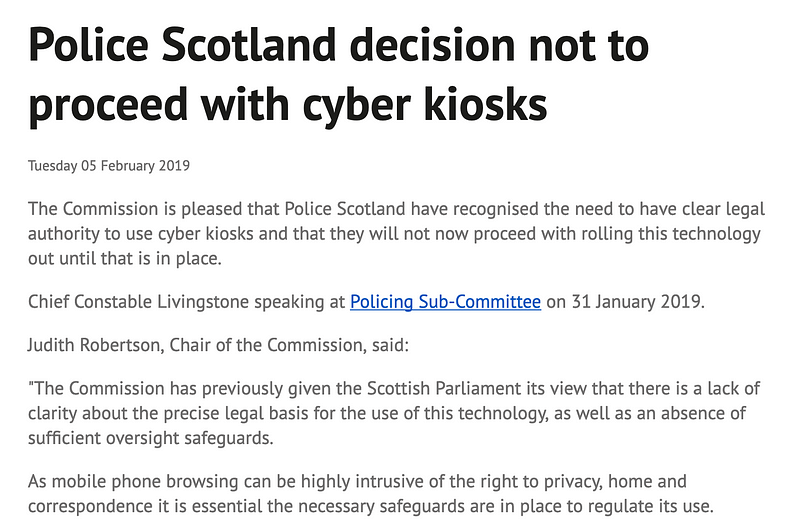Glasgow … And The Onset of Big Brother?

Glasgow … And The Onset of Big Brother?
The balance between privacy and the rights of society to protect itself
Well, it has finally arrived. First there were CCTV cameras around our cities, and now, in Glasgow, there are 70 new CCTV cameras which will automatically detect “intrusions” and also track and identity faces. This comes after the Scottish Football Association (SFA) said that they wanted to investigate facial recognition at football matches:
Perhaps I missed the debate on this, or has there been no debate at all? Well, we only know about the new cameras through a freedom of information request. This comes on the back of the disastrous Named Persons Act in Scotland, and which completely failed to inform parents about the actual operation of the system, and in the usage of cyber kiosks — and which were a nice name for a method of spying on your mobile phone:

As the Internet spies into virtually every part of our on-line existence, surely, we have the rights to leave our front-door, and not have our faced scanned? Or be watched as we purchase our coffee in the morning? Surely, we should be allowed to attend a football match, without cameras watching our every emotion? But our society wants to detect crime before it happens, and to protect its citizens before they come into harm. It is one of the most difficult debate of the 21st Century.
The cameras are being setup by Community Safety Glasgow, and their statements on the usage of the cameras are confusing. They have stated that, although it uses advanced facial recognition, they will not be used to automatically match to faces. But on the same hand, they say that the system can be trained on a face, and recognise it.
It aims to patrol key parts of the city (such as parks and lanes) — typically around night time — and watch for “intrusions”. A human operator will then be prompted to match a face to a known person. And don’t you just love the vague statement of:
“Suspect Search software allows operators to use a variety of other information to search camera feeds.”
If you are interested, here’s how facial recognition — or not facial recognition in the case of Glasgow — is done:
Conclusions
Why does our public sector try to be so secretive about plans? We have rights in this modern world, and too often these rights are breached. You can’t hide from the Internet, and you can’t hide your face anymore.